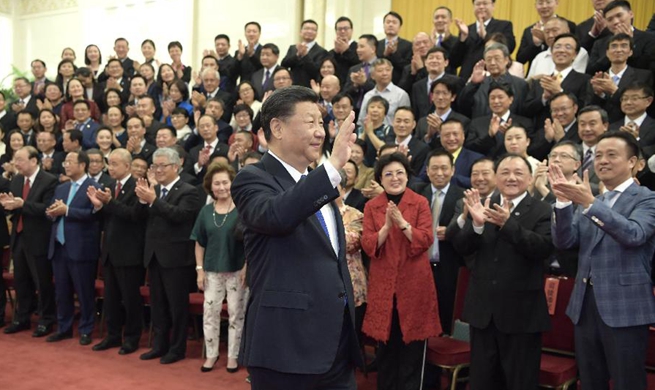TOKYO, May 29 (Xinhua) -- A number of pieces of legislation were revised by Japan's parliament on Wednesday aimed at enhancing measures to counter workplace harassment amid rising cases of bullying and coercion at some companies here.
Specific definitions have, for the first time, been prescribed to actions that constitute workplace harassment and five laws have been revised so as companies will be better able to prohibit such behavior.
Under the revisions, allegations made by workers about being mistreated by seniors, including in cases involving claims of sexual harassment cannot be met with the complainant being mistreated by the alleged violator.
This also extends to women returning to work after taking maternity leave being protected from bullying and abuses of power, cases of which have been prevalent in Japan.
Businesses will, henceforth, be required to take measures to prevent senior company officials abusing their positions in the workplace under the new revisions.
Offenses by bosses abusing their power in the workplace have been described by the government generically as, "excessive words and behavior by people who take advantage of their superior positions, harming the working environment."
In response to companies saying that abuses of power were sometimes ambiguous and hard to determine in some instances, the government will provide specific examples to act as guidelines for companies to deal with such issues.
Consultation services will also be implemented so companies can gain more clarity on potentially equivocal cases, the government said.
As per bills approved by the Cabinet in March, workers who report incidents of sexual harassment, under the new regulations, will not be allowed to be discriminated against or treated differently from others once the claim has been made.
The firms of employees who sexually harass those at other companies, under the new revisions, will be required to cooperate with the investigative activities of the company where the complaint has been made.
In line with regulations that large firms must follow, small and medium-sized companies employing between 101 to 300 workers, will, to promote women's social advancement, have to set quantifiable targets for promoting women to positions of seniority, under the government's new revisions.
Large companies who do not disclose the ratio of female to male executives, or the numbers of workers, male or female, that have taken childcare leave, will have their names publicly posted by the government, under the new guidelines.
The revised legislation comes amid record high cases of bullying and abuses of power reported by companies.
According to labor bureaus nationwide, there were 72,000 recorded cases in 2017, with the number of cases rising for a sixth straight year.
While some experts on the matter believe that the new revisions will help reduce the number of cases of workplace harassment, especially those involving extreme abuses of power, critics of the government's move have highlighted the fact that the newly revised pieces of legislation do not lay out punitive measures that can be taken against violators.













